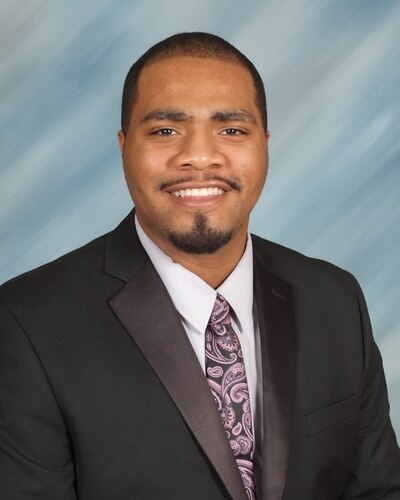My 16-year-old self would never have believed it, but, today, school is my happy place.
After dropping out in 2010, I returned at 19, enrolling in Excel Academy of Englewood. I’m now a proud 2015 graduate of Excel, which is part of the Chicago Public Schools’ Options Network and enrolls students who have fallen behind on their credits. I am also a mentor at the school, working with young people who, like me, have struggled to graduate.
The experience has been personally rewarding, as I once believed I would never earn a high school diploma, let alone help others do the same.

Growing up, my family moved neighborhoods about once a year. I would find friends and then quickly lose them when we moved again. Looking back, I always found myself around bad stuff, including gang violence. The low point was getting shot four times when I was 16.
I couldn’t attend school while recovering, and by the end of the year, it hit me that I would fail ninth grade. That life-changing incident spurred me to drop out. I came from a good family, but dropping out was a common occurrence among those around me, so it didn’t seem like a big deal at the time.
After spending nearly four years not doing much with my life, I was tired of doing the wrong things and I wanted something better for my life. So I drew on my courage and went back to school.
I still remember the fear I felt before my first day at Excel. Voices around me and in my own head told me I was too old to be in high school. I had to put that aside. I couldn’t let how others felt about me or my past decisions determine my future.
A big part of my role is listening and making sure the students feel heard.
At this new school, the teachers and staff didn’t give up on me and always pushed me to improve. If my classmates or I got a C, they helped us work toward a B, and then toward an A. Having someone in my corner felt good. I had been holding myself back without realizing it.
The experience changed everything for me. Today, I work with Excel students who are “Youth in Care,” meaning they have been placed in out-of-home care. If we want to reach the individuals who need us most, it’s critical we share our stories. Telling students about my rocky path to a high school diploma, for example, helps them relate and open up to me.
To be able to say “I can help you” is the reason I get up every day and come to work. The most rewarding thing is to see the students I’ve mentored graduate from high school. I understand the difficult and, often, traumatic experiences they overcame to get that diploma and reach for a better life. Together we work on developing coping and problem-solving skills. And a big part of my role is listening and making sure the students feel heard.
This is no doubt an important school year for kids across the country, especially in areas such as Chicago, where many students are back in the physical classroom after more than a year away. The return to in-person learning is also a challenge for those who are returning to the classroom after dropping out of school altogether. The pandemic forced students to attend school from home — and for many that meant no school at all as they helped to provide and care for their families. Others faced challenging circumstances that made it hard to attend school long before COVID.
If there is violence around you, it’s hard to focus on academics. I know this from experience. You can’t see past the trauma and pain you’re experiencing. These teens and young adults need someone in their corner, someone to propel them forward.
Educators must work to reenlist and support students who have dropped out — for whatever reason and no matter how long ago. They can help end the stigma of returning to school. And they can celebrate those students who, against the odds, return to the classroom.
Raynard Gillispie is a program mentor for the YS3 (Youth Scholars, Skills, and Service) Program at Excel Academy of Englewood in Chicago, an accelerated school of choice for students, ages 15-21, who have fallen behind in their studies.


